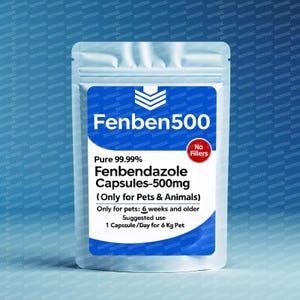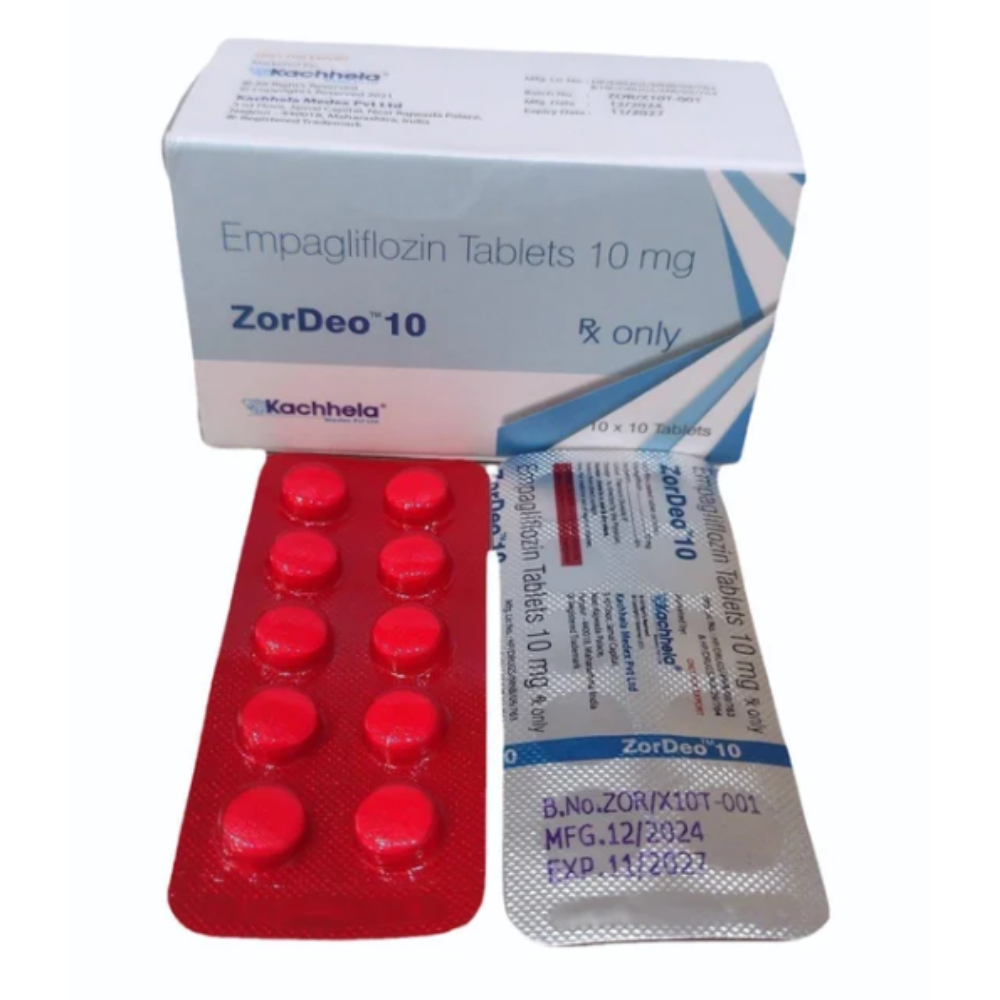fenbendazole capsules: Key Insights for Owners
Wiki Article
Discovering the Devices Behind Fenbendazole and Its Influence On Animal Health And Wellness
Fenbendazole is a commonly used anthelmintic understood for its effectiveness against different parasites. Its primary system includes the inhibition of microtubule development, which interferes with crucial procedures in these virus. Beyond its antiparasitic homes, fenbendazole also shows up to enhance immune feedbacks and possesses anti-inflammatory benefits. Comprehending these multifaceted results might disclose brand-new applications for animal wellness. Concerns continue to be regarding its full potential and safety profile.The Pharmacokinetics of Fenbendazole
The pharmacokinetics of fenbendazole, a widely utilized anthelmintic in veterinary medicine, includes the research study of its absorption, circulation, metabolic rate, and excretion within animal systems. After administration, fenbendazole is rapidly absorbed from the gastrointestinal system, with peak plasma focus taking place within hours. Its circulation is influenced by variables such as cells binding and lipid solubility, permitting it to pass through different cells properly. The medicine undertakes comprehensive metabolic process mostly in the liver, where it is exchanged energetic and inactive metabolites. These metabolites play a duty in the medicine's overall efficacy and safety account. Discharging happens mostly with feces, with a smaller proportion eliminated via urine. The half-life of fenbendazole varies amongst varieties, which affects dosing routines. Recognizing these pharmacokinetic residential properties is vital for optimizing its healing usage and making sure efficient parasite control in vet techniques.Systems of Action Against Parasites
Fenbendazole exerts its antiparasitic impacts mainly via the restraint of microtubule development in bloodsuckers. This disturbance impacts their structural integrity and cellular features, bring about impaired basal metabolism. As an outcome, the medication successfully endangers the survival and reproduction of numerous parasitic organisms.Restraint of Microtubule Development
Restraint of microtubule formation represents a critical mechanism whereby certain anthelmintic agents, including fenbendazole, exert their results on bloodsuckers. Fenbendazole binds to tubulin, a healthy protein that forms microtubules, disrupting the polymerization procedure essential for microtubule assembly. This disruption harms important mobile features, consisting of mitosis, intracellular transport, and structural integrity. As microtubules play a vital duty in maintaining the shape and feature of parasitical cells, their restraint brings about cell cycle arrest and eventual fatality of the parasite. This mechanism is especially efficient versus nematodes, as their dependence on microtubules for flexibility and nutrient absorption makes them susceptible to fenbendazole. The restraint of microtubule development is a crucial element of fenbendazole's healing efficiency in veterinary medicine.Interruption of Basal Metabolism
Disrupting power metabolism is one more crucial device through which fenbendazole targets parasitic organisms. This anthelmintic changes the power manufacturing paths within bloodsuckers, largely affecting their ability to generate adenosine triphosphate (ATP) By inhibiting glucose uptake and interfering with mitochondrial function, fenbendazole restrictions the energy sources necessary for the survival and recreation of these microorganisms. Therefore, bloodsuckers become significantly vulnerable to environmental tensions and immune feedbacks. Moreover, the interference in basal metabolism not only influences the parasites directly yet also decreases their capability to absorb nutrients, better harming their growth. Generally, the disturbance of power metabolic rate stands for a basic facet of fenbendazole's efficiency versus numerous parasitic infections, contributing greatly to improved pet health and wellness resultsPossible Negative Effects and Safety And Security Account
The prospective side effects and safety and security account of fenbendazole warrant careful consideration, specifically in veterinary applications. While usually pertained to as risk-free, some animals might experience adverse responses, including stomach disturbances such as vomiting and looseness of the bowels. In addition, neurological signs, although uncommon, have been reported in delicate individuals, highlighting the demand for tracking during therapy.
Fenbendazole's safety in numerous species, consisting of dogs and felines, has actually been documented, however dosage and duration of therapy must be very carefully taken care of to minimize risks. Expectant or breast feeding animals may additionally call for special interest, as the impacts on developing fetuses or nursing spawn are not totally recognized.
Regular veterinary examinations can assist alleviate possible adverse effects and assure the medicine is carried out suitably. Subsequently, while fenbendazole is a reliable anthelmintic representative, watchfulness concerning its side results is crucial for preserving animal health.

Fenbendazole's Impact on Immune Feature
Fenbendazole has actually been kept in mind for its potential to regulate body immune system feedbacks in animals. Its anti-inflammatory residential or commercial properties may add to boosted immune feature, providing a dual benefit in taking care of wellness (fenbendazole 444). Recognizing these results is essential for examining fenbendazole's role in veterinary medicineImmune System Inflection

Anti-inflammatory Characteristics
Anti-inflammatory impacts represent a substantial facet of fenbendazole's influence on immune function. Research suggests that fenbendazole may minimize the manufacturing of pro-inflammatory cytokines, which are essential in moderating inflammatory feedbacks. By regulating these cytokines, fenbendazole can potentially ease inflammation-related problems in pets. This anti-inflammatory action not just aids in handling symptoms related to different illness yet additionally enhances overall body immune system efficiency. In addition, its capacity to advertise a balanced immune feedback helps avoid too much inflammatory damage, which can lead to persistent wellness issues. Fenbendazole's duty in swelling monitoring underscores its significance in vet medication, supplying a dual advantage of antiparasitic activity and immune system assistance for pet wellness.Applications Beyond Standard Parasitic Infections
While largely recognized for its effectiveness versus various parasitic infections, fenbendazole has actually garnered focus for possible applications yet conventional extent. Recent researches suggest that fenbendazole might have valuable impacts on mobile health and immune feedback, making it a fascinating candidate for taking care of other wellness conditions in animals. Its great site reported anti-inflammatory homes might give relief for pets enduring from persistent inflammatory conditions. Additionally, some research study shows that fenbendazole could contribute in sustaining the total health of animals by improving nutrition absorption and stomach health. Its potential as an adjunct therapy in cancer treatment has stimulated passion, as preliminary findings suggest it may prevent growth cell development in particular contexts. These varied applications highlight fenbendazole's adaptability, urging more expedition right into its complex advantages for pet wellness past its conventional usage as a deworming representative.Future Study Instructions and Effects for Pet Wellness
The expedition of fenbendazole's possible applications has actually opened up brand-new methods for study intended at boosting pet wellness. Future studies might concentrate on its performance versus a more comprehensive series of microorganisms, including germs and viruses, thus broadening its duty in vet medication. The ramifications of fenbendazole's systems, such as its effect on immune modulation, warrant additionally investigation to understand exactly how it can strengthen total health in various types.Additionally, research study may explore excellent does and formulations to take full advantage of efficacy while reducing prospective adverse effects. Investigating fenbendazole's collaborating impacts with other drugs might bring about a lot more efficient therapy procedures. Longitudinal studies evaluating lasting results in animals treated with fenbendazole might offer beneficial insights into its security and effectiveness. On the whole, the continued expedition of fenbendazole provides encouraging potential to boost pet health and wellness, requiring a joint method among scientists, vets, and pharmaceutical designers to help with developments in this area.
redirected here
Frequently Asked Questions
Can Fenbendazole Be Used in Livestock for Bloodsucker Avoidance?
The inquiry of read whether fenbendazole can be utilized in livestock for parasite prevention matters, as manufacturers look for efficient treatments (fenbendazole). Research shows it may supply advantages, however appropriate standards and veterinary suggestions are essential for risk-free usageWhat Is the Advised Dose of Fenbendazole for Different Animals?

Are There Any Known Drug Communications With Fenbendazole?
Existing expertise suggests that fenbendazole might connect with certain drugs, potentially impacting their effectiveness or metabolic process. Veterinary professionals suggest speaking with a vet to assess private animal cases and identify any possible interactions before administration.Just How Does Fenbendazole Compare to Other Antiparasitic Medications?
Fenbendazole is often contrasted to various other antiparasitic medicines based on efficacy, range of activity, and safety accounts. It is preferred for its effectiveness versus a large range of parasites while usually showing very little side effects in pets.Is Fenbendazole Effective Against Viral or Bacterial Infections in Pets?
The effectiveness of fenbendazole versus viral or microbial infections in pets stays unproven. Study mainly concentrates on its antiparasitic properties, with restricted evidence sustaining any function in treating non-parasitic infections in vet medicine.Report this wiki page